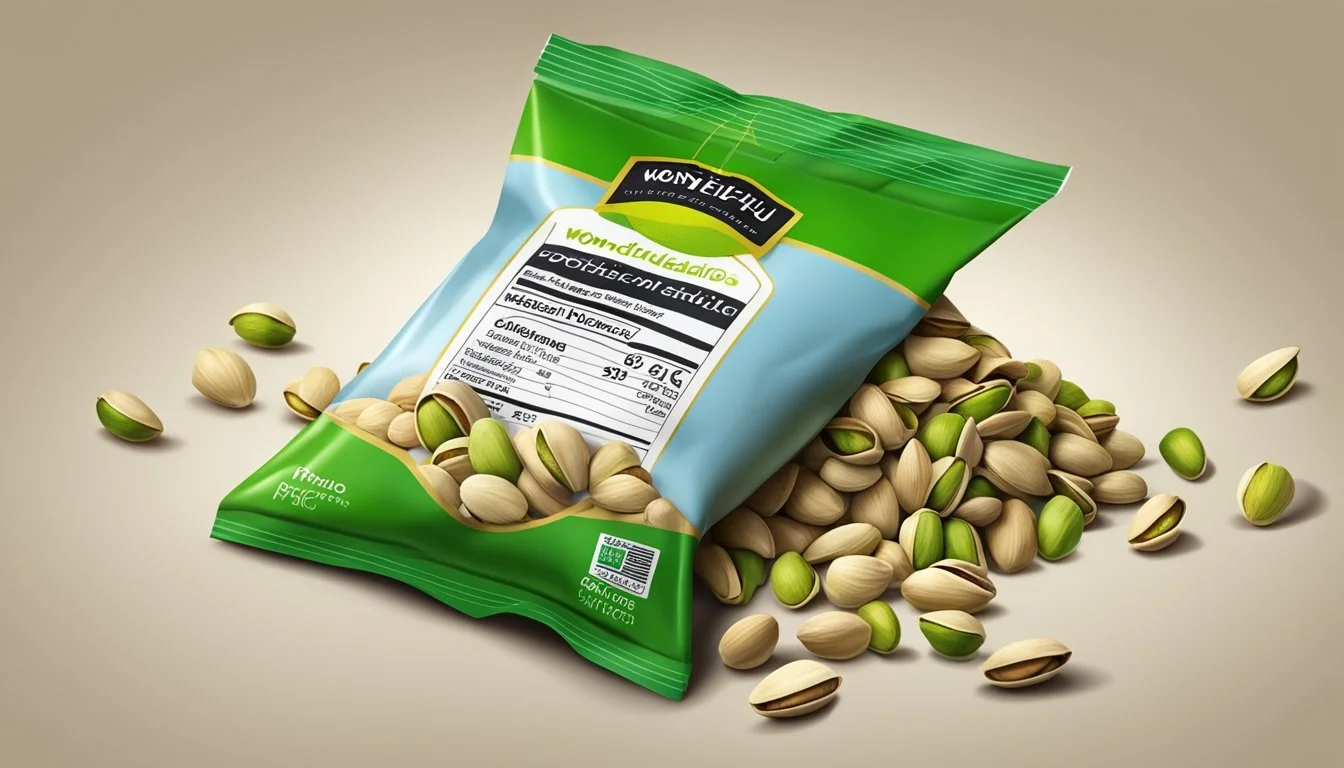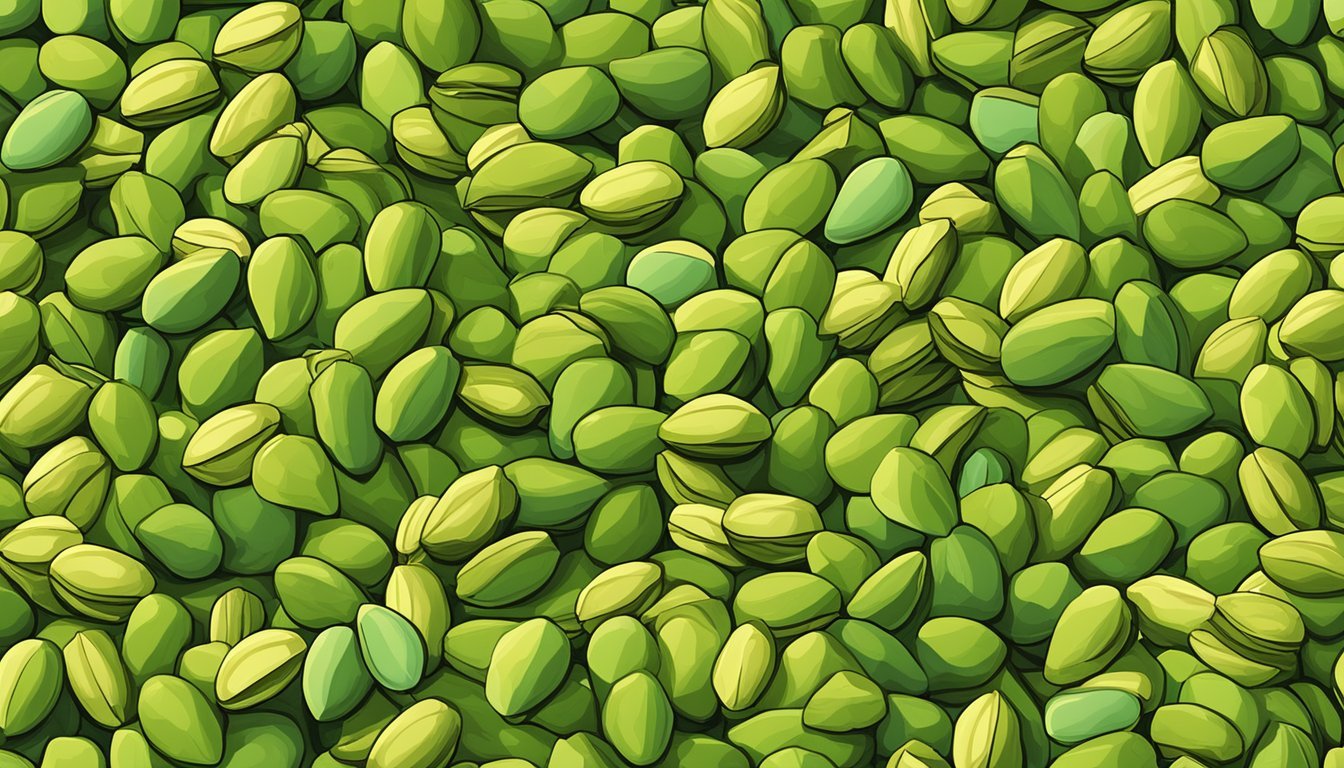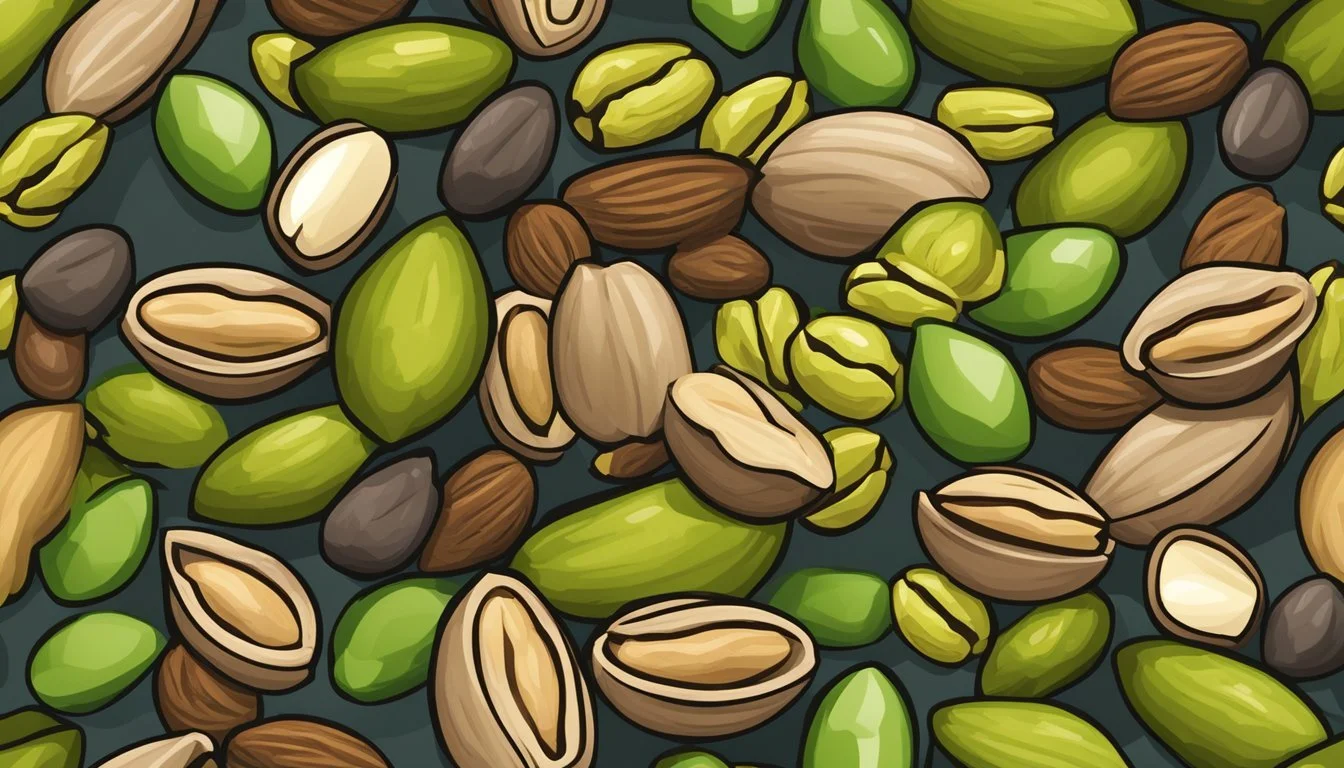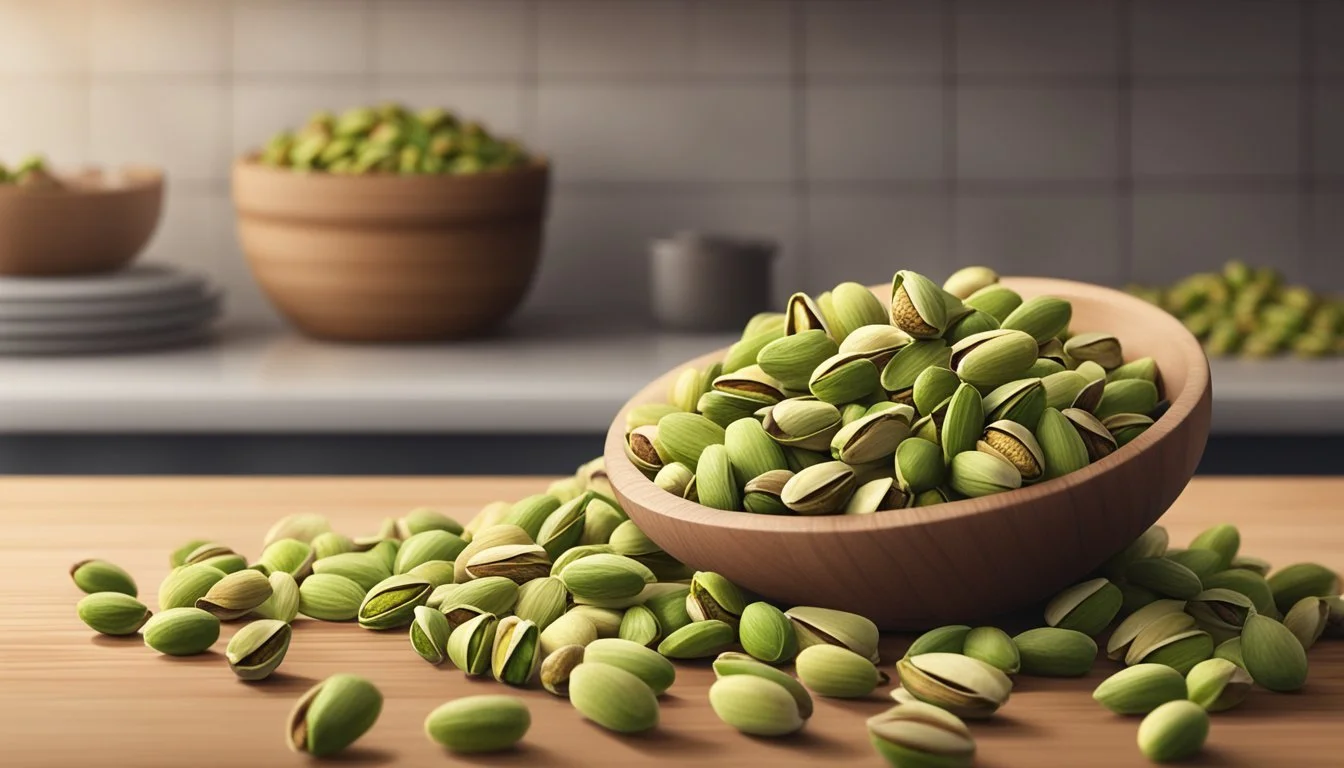How Many Bags of Wonderful Pistachios Per Day Is Too Much?
Understanding Healthy Portions
Pistachios, known for their distinctive green hue and satisfying crunch, are more than just a snack to ward off hunger pangs. They are a rich source of nutrients, offering protein, fiber, and antioxidants. Health-conscious individuals often include them in their diets for these benefits. However, even with foods as nutritious as pistachios, moderation is key. Consuming the right amount is essential for reaping the health benefits without experiencing adverse effects.
A standard serving size of pistachios is about one ounce, which translates to 49 kernels. This portion provides a good balance of nutrients without overindulging in calories. While enjoying Wonderful Pistachios or any other brand, it's important to pay attention to the suggested serving size. Indulging in too many can lead to unwanted weight gain and could potentially affect blood pressure or lead to gastrointestinal discomfort, particularly for individuals with sensitivities or existing health conditions.
Understanding the limit of pistachio intake ties directly into maintaining overall health and well-being. While they can be a valuable addition to a balanced diet, keeping track of consumption ensures these nuts (What wine goes well with nuts?) contribute positively to one's dietary goals. Consumers should be aware of how many bags they eat per day and adjust their intake accordingly to avoid excessive consumption.
Nutritional Profile of Pistachios
Pistachios are esteemed for their unique balance of nutrients that contribute to their health benefits. They provide a good source of protein, healthy fats, and fiber, along with essential vitamins and minerals.
Proteins and Healthy Fats
Pistachios are a protein-rich snack, with about 6 grams of protein per 1-ounce serving. The majority of their fat content is heart-healthy monounsaturated and polyunsaturated fats, while being relatively low in saturated fats. One ounce, equivalent to 49 kernels, contains approximately 12.8 grams of fat, which is beneficial for maintaining good health when consumed in moderation.
Fiber and Carbohydrates
These nuts are not just rich in proteins and fats; they also offer a significant amount of fiber, providing around 3 grams per 1-ounce serving. The total carbohydrate count is around 8 grams per ounce, and due to the fiber content, pistachios have a low glycemic index, which can help mitigate blood sugar spikes.
Vitamins and Minerals
Pistachios are dense with a variety of vitamins and minerals. They are a particularly excellent source of vitamin B6, phosphorus, magnesium, and potassium. Each serving of pistachios also includes other minerals such as iron, calcium, copper, and manganese. Their nutrient profile supports various physiological functions, including immune health, bone strength, and muscle function.
Health Benefits of Pistachios
Pistachios offer a range of health advantages, including supporting heart health, aiding in weight management, helping to control blood sugar, and promoting eye health. This section will provide specific information on how these nuts can be an essential part of a healthy diet.
Heart Health
Pistachios are a heart-friendly snack. They contain antioxidants, polyphenols, and flavonoids which help to protect against heart disease. Regular consumption of pistachios has been linked to lower levels of bad cholesterol (LDL) and higher levels of good cholesterol (HDL), contributing to a healthier cardiovascular system.
Weight Management
For those who are watching their weight, pistachios can be a smart addition to their diet. Due to their fiber and protein content, these nuts contribute to a feeling of fullness, thereby potentially reducing overall calorie intake. Even more, pistachios have one of the lowest calorie counts per ounce among nuts.
Blood Sugar Control
Pistachios may aid in blood sugar control, which is critical for individuals managing diabetes. They have a low glycemic index, meaning they do not cause substantial spikes in blood sugar levels. Additionally, the presence of antioxidants and healthy fats in pistachios can help improve the body's response to insulin.
Eye Health
The carotenoids lutein and zeaxanthin found in pistachios are vital for eye health. These antioxidants help protect the eyes from damage caused by blue light and may reduce the risk of age-related macular degeneration. Pistachios are also an excellent source of Vitamin B6, which supports the health of the nervous system, including the optic nerve.
Ideal Consumption and Risks
The appropriate amount of Wonderful Pistachios to consume daily hinges on the nutritional value and potential adverse effects. Recognizing the recommended serving size is crucial for reaping the health benefits while averting negative outcomes such as weight gain and gastrointestinal discomfort.
Recommended Serving Size
It is advised to eat approximately 1 ounce or 49 kernels of pistachios per day. This serving size ensures an individual gains the nutritional benefits, which includes protein, fiber, and healthy fats, without excessive calorie intake.
Nutritional Content for 1 ounce:
Calories: 159
Fat: 12.8g
Protein: 5.73g
Carbohydrates: 7.71g
Fiber: 3g
Concerning Wonderful Pistachios specifically, if they are salted, it is essential to consider the added sodium, which can contribute to high blood pressure if consumed excessively.
Potential Side Effects
Consuming pistachios beyond the recommended serving size can lead to several health issues:
Weight Gain: Due to their high calorie and fat content, overindulgence may result in an increase in weight.
Gastrointestinal Issues: Overconsumption might cause bloating, gas, constipation, or diarrhea in some individuals.
Allergic Reactions: As tree nuts, pistachios can provoke serious allergies in susceptible individuals.
High Blood Pressure: Salted pistachios contain sodium, which can exacerbate blood pressure when eaten in large quantities.
Kidney Complications: An excessive intake might increase the risk for kidney stones, especially for those with existing kidney problems.
By adhering to the recommended serving size, one can enjoy pistachios as a healthy snack while minimizing these risks.
Comparing Pistachios to Other Nuts
When evaluating the health benefits and culinary roles of pistachios, it's informative to compare them with other popular nuts like almonds, cashews, and pecans. They differ in terms of nutritional profile and taste, influencing how they are used in dishes.
Nutritional Differences
Pistachios stand out among nuts due to their lower calorie and fat content. For instance, a 1-ounce serving of pistachios has 159 calories and 12.8 grams of fat, which is less than what's found in walnuts, pecans, and macadamia nuts. Unlike pistachios, which are rich in heart-healthy monounsaturated fats, other nuts like almonds and cashews have a higher proportion of this nutrient, while pecans and macadamia nuts contain more saturated fats.
Below is a nutritional comparison of a standard 1-ounce serving of various nuts:
Nut Type Calories Total Fat (g) Saturated Fat (g) Monounsaturated Fat (g) Protein (g) Fiber (g) Pistachios 159 12.8 Not specified Predominantly present 5.73 3 Almonds 164 14.1 1.1 9 6 3.5 Cashews 157 12 2.2 6.7 5 0.9 Peanuts 161 14 1.9 7.0 7.3 2.4 Pecans 196 20.4 1.7 11.6 2.6 2.7
Taste and Culinary Uses
Taste and preferred culinary uses also distinguish pistachios from other nuts. Pistachios have a delicate, slightly sweet flavor and are often enjoyed both roasted and raw. They are a popular snack, can be sprinkled on salads, and are used in various dishes for their unique taste and textured crunch. Almonds, on the other hand, offer a firmer bite and a milder flavor, making them versatile for use in both savory and sweet recipes.
Cashews have a creamy texture and a sweet taste, lending them well to vegan recipes as dairy substitutes, while pecans, with their rich and buttery flavor, are commonly found in desserts. Peanuts, which are technically legumes, have a distinct taste and are often roasted to enhance their flavor, making them a go-to snack and a classic ingredient in peanut butter.
Pistachios in Various Diets
Pistachios play a versatile role in various dietary plans, providing essential nutrients and healthy fats that can be particularly beneficial for vegans and vegetarians, as well as for specialized health diets like the Mediterranean diet for heart health and weight management.
Impact on Vegan and Vegetarian Diets
In vegan and vegetarian diets, pistachios serve as an excellent source of protein, fiber, and healthy fats. They contain essential amino acids necessary for maintaining muscle health and other bodily functions. A single ounce (about 49 kernels) can contribute significantly to the daily protein intake required for those following plant-based diets. Moreover, the healthy mono- and polyunsaturated fats found in pistachios can aid in satisfying hunger, which is vital for effective weight management.
Essential Nutrients:
Pistachios are rich in nutrients such as:
Vitamin B6
Potassium
Antioxidants
These nutrients are crucial for maintaining energy levels, supporting the nervous system, and offering other health benefits, making pistachios a valuable addition to a vegan or vegetarian diet where certain nutrients might be less available due to the exclusion of animal products.
Inclusion in Specialized Health Diets
Pistachios are a recommended snack for those following specialized health diets, such as the Mediterranean diet famed for its cardiovascular benefits. Their high content of antioxidants, unsaturated fatty acids, and fiber contributes to heart health by potentially reducing the risk of heart disease and by aiding in cholesterol management.
Mediterranean Diet:
Encourages consumption of nuts, including pistachios
Supports heart health with nutrients provided by pistachios
Pistachios can replace less healthy snacks, contributing to the overall high nutritional value of this diet
For individuals focused on weight management, the calorie-to-nutrient ratio of pistachios makes them a smart choice. They help in controlling appetite and providing sustained energy, which is essential for maintaining a balanced diet and avoiding overeating.
Weight Management:
Portion control: about one ounce of pistachios is recommended
Low in calories compared to other nuts, facilitating a calorie-controlled diet
Consumption Considerations
When incorporating Wonderful Pistachios into a daily diet, individuals should consider potential allergic reactions and the importance of nutritional balance with other foods.
Effect on Allergies and Intolerances
Pistachios are tree nuts, which are common allergens. Individuals with tree nut allergies may experience adverse reactions to pistachios, which can range from mild to severe. Additionally, pistachios contain fructans, a type of carbohydrate that can cause digestive discomfort in some people with sensitivities, such as those with irritable bowel syndrome (IBS).
Balancing Consumption with Other Foods
Pistachios can be a healthy snack when eaten in moderation as part of a varied diet. They offer protein, fiber, and antioxidants, but they are also high in calories and fat. To maintain a balanced diet and health:
Limit intake to about one ounce (roughly 49 kernels) per day.
Ensure a variety of other nuts, seeds, and nutritious foods are included in the diet to provide a well-rounded intake of essential nutrients.
Pistachios in Cooking and Snacking
Pistachios offer a versatile flavor profile that can enhance both snacks and meals, providing a satisfying crunch and health benefits when consumed in moderation.
Creative Uses in Snacks
Pistachios lend themselves to a wide variety of snack options due to their rich taste and health-promoting nutrients. They can be eaten alone as a healthy snack or mixed with other nuts and dried fruits (What wine goes well with nuts and dried fruits?) in a trail mix. Roasted pistachios, either salted or unsalted, add depth to the flavor. For those monitoring their sugar intake, pistachios are a smart choice, as they are naturally low in sugars.
Key Points:
Naturally Low in Sugars: Ideal for reducing sugar consumption.
Rich Flavor: Enhances the taste of various snack combinations.
Incorporating into Meals
Incorporating pistachios into meals not only elevates the taste but also boosts the nutritional value. They can be sprinkled over salads to add a nutty crunch or ground up to thicken and flavor sauces. Pistachios also make an excellent crust for fish or meat due to their texture and substance, and their presence in desserts like ice creams or as a garnish on pastries adds both visual appeal and a healthful twist.
Salad Tip:
Add roasted pistachios to salads to complement leafy greens with an extra crunch and nutrients.
Main Courses:
Pistachio crusts on proteins redefine the dish with a delightful, nutty essence.
Desserts:
Blend pistachio kernels into desserts for a subtle, rich flavor that is healthier than many traditional ingredients.
Healthy snacking with pistachios can be a delectable and nutritious practice, but it is important to be mindful of portion sizes to prevent excessive intake of carbs and calories. Despite their health benefits, pistachios should be consumed in moderation.
Understanding Labels and Quality
When selecting pistachios, it's crucial to assess both the nutritional information and indicators of quality that can affect their health benefits.
Decoding Nutritional Information
Nutritional labels on bags of Wonderful Pistachios provide essential information for consumers to make informed choices. A typical serving, about 49 kernels or 1 ounce, contains around 160 calories. Consumers should look for:
Total Fat: Approximately 13g, of which Saturated Fat makes up 1.5g. The majority of the remaining fat is Monounsaturated Fat, which is heart-healthy.
Sodium: Values can vary, especially between unsalted and salted varieties. For salted pistachios, it's common to find around 135mg of sodium per serving.
Carbohydrates and Sugars: A minimal amount of sugars and a moderate carbohydrate count, with substantial dietary fiber.
Protein: An excellent source with about 6g per serving.
Consuming pistachios provides antioxidants like carotenoids and flavonoids, which are not always listed on the nutritional labels but are crucial to the nuts' health-promoting properties.
Identifying Quality Pistachios
Discerning the quality of pistachios is pivotal for both taste and nutritional value. Consumers should consider:
Appearance: Quality pistachios should have a characteristically vibrant green hue, signifying the presence of carotenoids.
Packaging: Look for packages that protect the nuts from light and air, as exposure can degrade quality.
Freshness: Check for a harvest date — fresher nuts retain more nutrients and are more likely to have a crunchy texture.
Labels may also indicate if the pistachios are organic or have been grown using fewer pesticides, which some consumers may prefer. Quality pistachios, such as those from credible brands like Wonderful, are often associated with consistent size and flavor, and lower instances of damaged or empty shells.










